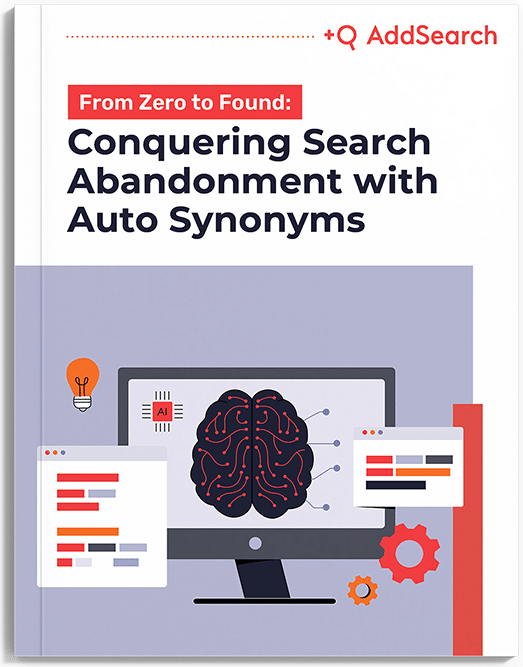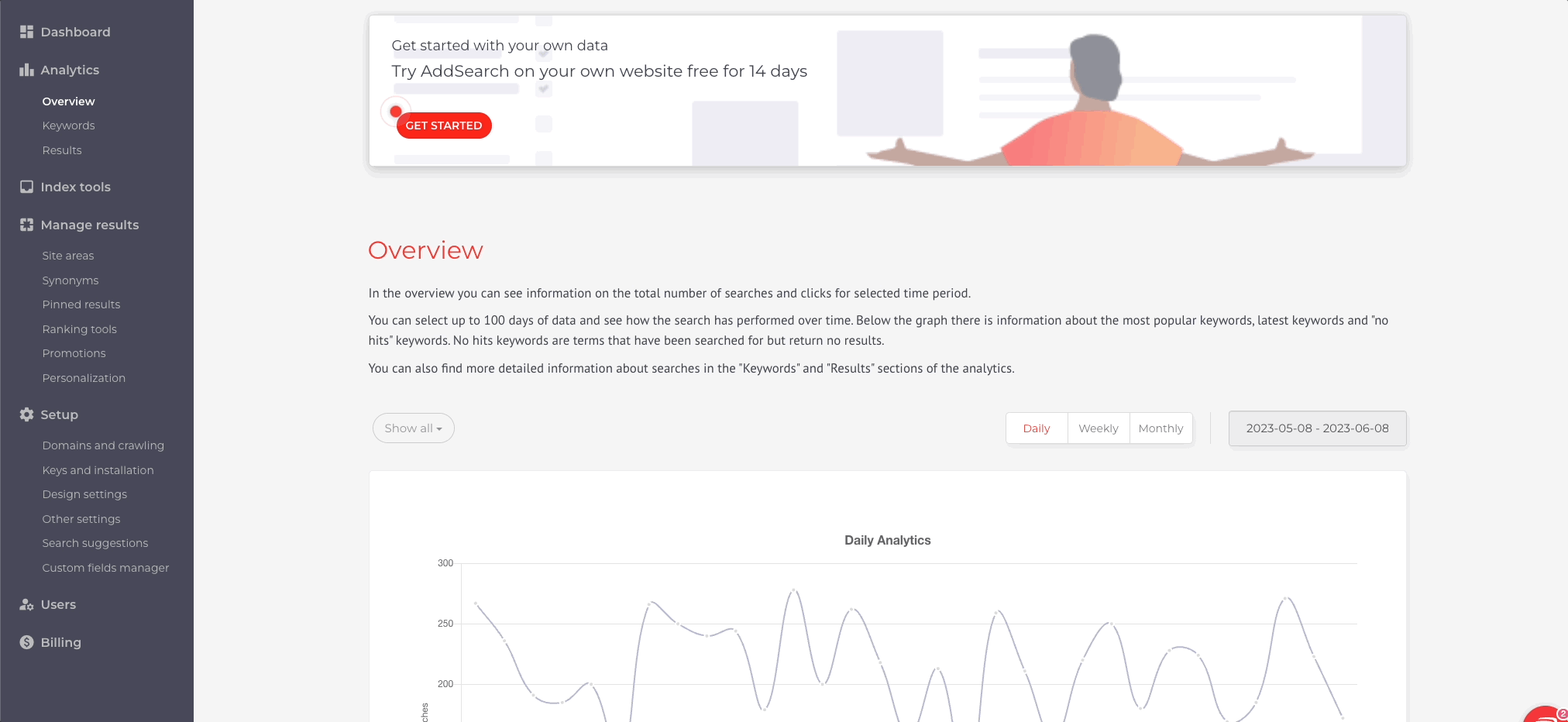In today’s data-driven business landscape, the sheer volume of information within an organization can be overwhelming. From internal documents and knowledge bases to customer data and market insights, employees are constantly bombarded with information. This information overload can hinder productivity, stifle innovation, and create frustration for both employees and customers.
That’s where enterprise search comes in. It’s not just about having a search bar; it’s about providing a powerful, intelligent tool that enables employees and customers to quickly and easily find the precise information they need when they need it. A robust enterprise search solution can break down information silos, streamline workflows, and empower your team to make informed decisions based on accurate and up-to-date data.
However, not all enterprise search solutions are created equal. Choosing the right one for your organization requires careful consideration of your specific needs, budget, and technical capabilities. In this guide, we’ll delve into the world of enterprise search, exploring its key features, benefits, and the factors you should consider when selecting a solution. Whether you’re a small business or a large corporation, we’ll equip you with the knowledge you need to make an informed decision and unlock the full potential of enterprise search for your organization.
What is Enterprise Search?
Enterprise search is a technology that enables organizations to efficiently search, index, and retrieve information across various internal data sources through a unified interface. Unlike basic search functions, enterprise search systems are designed to handle large volumes of data from different platforms. These solutions use advanced algorithms, including AI and machine learning, to deliver relevant and contextual search results, improving productivity, decision-making, and overall user experience within the organization.
The challenges of enterprise search
Implementing an enterprise search solution can significantly enhance how your organization handles information, but it comes with its own set of challenges. Understanding these challenges is crucial for selecting the right solution and maximizing its benefits.
Information overload
In the modern business environment, data is generated at an unprecedented rate. This overwhelming amount of information can make it difficult for employees to find relevant data quickly, leading to decreased productivity and frustration.

Siloed content
Often, information is scattered across different systems and departments, creating data silos. These silos hinder effective data utilization and slow down knowledge discovery, as employees must navigate multiple platforms to find what they need. This fragmentation can lead to duplicated efforts and missed opportunities.
Diverse user needs
Different departments and roles within an organization have varying search requirements. For example, the marketing team might need access to customer data, while the engineering team requires technical documents. A one-size-fits-all approach to search will not meet these diverse needs.

Security and Compliance
With the increasing amount of sensitive data, ensuring data security and compliance with regulations is paramount. An effective enterprise search solution must offer robust security measures, such as encryption and access controls, to protect sensitive information. Additionally, compliance with data protection regulations like SOC2 is essential to avoid legal repercussions.
For more insights into SOC2, read our blog post-SOC 2: Strengthening Trust in the Digital Realm.
Key features of enterprise search solutions
Selecting the right enterprise search solution requires a thorough understanding of the key features that can address your organization’s unique needs. Here are some essential features to consider:
Advanced search algorithms
- Definition: Advanced search algorithms leverage AI and machine learning to understand natural language, context, and user intent, providing more accurate and relevant results.
- Benefit: These algorithms can interpret complex queries and deliver precise results quickly, enhancing the user experience.
- Example: AI-powered search algorithms can predict what users are searching for and suggest relevant content based on past behavior and contextual clues.

and AI to adapt and learn from user search
patterns and preferences.
Federated search
- Definition: Federated search allows users to search across multiple data sources, including internal documents, databases, cloud storage, and external resources, from a single search interface.
- Benefit: This feature breaks down information silos and provides a unified search experience, saving time and improving efficiency.
- Example: A federated search can retrieve documents from SharePoint, Google Drive, and an on-premises server in one search query, making data access seamless.
Faceted search and filtering
- Definition: Faceted search and filtering enable users to refine their search results based on specific criteria such as date, author, department, or file type.
- Benefit: This capability helps users narrow down search results to find exactly what they need, improving accuracy and user satisfaction.
- Example: Users can filter search results by document type, publication date, or department to quickly locate the most relevant information.
Personalization
- Definition: Personalization tailors search results to individual users based on their roles, preferences, and past behavior.
- Benefit: Personalized search results enhance user engagement and satisfaction by providing highly relevant content.
- Example: A personalized search experience might highlight marketing reports for a marketing manager and technical documents for an engineer, based on their search history and role.

Losing customers to no hit searches? Auto Synonyms helps turn every missed search into a successful find. Learn how in our latest white paper.

Analytics and Reporting
- Definition: Analytics and reporting features track search usage, popular queries, and user engagement to provide insights into search performance and areas for improvement.
- Benefit: These insights help organizations optimize their search functionality and understand user behavior better.
- Example: Analytics can reveal which search terms are most frequently used and which queries often lead to no results, allowing for continuous improvement of the search system.
Security and access controls
- Definition: Robust security measures, including encryption, authentication, and role-based access controls, protect sensitive data and ensure compliance with data protection regulations.
- Benefit: Ensures that only authorized personnel can access sensitive information, maintaining data integrity and confidentiality.
- Example: Role-based access controls can restrict access to financial documents to only the finance department, ensuring data security.
Choosing the right enterprise search solution
Selecting the ideal enterprise search solution involves careful consideration of various factors to ensure it meets your organization’s unique needs. Here’s a step-by-step guide to help you make an informed decision:
Identify your needs
- Assess data volume: Determine the amount of data your organization handles. This includes current data and anticipated growth.
- Understand content types: Identify the types of content that need to be searchable, such as documents, emails, databases, and multimedia.
- Evaluate user roles: Consider the different user roles within your organization and their specific search requirements.
Actionable tip: Create a checklist of your organization’s specific needs and priorities to streamline the evaluation process.
Evaluate features
- Scalability: Ensure the solution can scale with your business as it grows. This includes handling increasing volumes of data and users.
- Relevance and customization: Look for advanced search algorithms that deliver relevant results and offer customization options to tailor the search experience.
- Ease of use: The search solution should have an intuitive interface that requires minimal training for users to adopt.
Actionable tip: Request a demo or trial period to test the solution’s features and user-friendliness.
Consider integration
- Seamless integration: The solution should integrate smoothly with your existing systems and workflows. This includes compatibility with content management systems (CMS), customer relationship management (CRM) software, and other enterprise applications.
- API capabilities: Check if the solution offers robust APIs for custom integrations and data access.
Actionable tip: Make a list of your current systems and verify integration capabilities with potential search solutions.
Assess vendor reputation and support
- Vendor reputation: Research the vendor’s track record and customer reviews. A reputable vendor with a history of successful implementations is more likely to provide a reliable solution.
- Customer support: Evaluate the quality of customer support, including availability, responsiveness, and expertise.
Actionable tip: Look for case studies and testimonials to gauge the vendor’s reliability and customer satisfaction.
Consider the total cost of ownership (TCO)
- Initial and ongoing costs: Evaluate the initial setup costs, licensing fees, and ongoing maintenance expenses. Solutions with lower upfront costs might incur higher long-term expenses.
- Return on investment (ROI): Consider the potential ROI of the search solution. Efficient search capabilities can lead to significant productivity gains and cost savings.
Actionable tip: Calculate the TCO and potential ROI to understand the financial implications of your choice.
AddSearch enterprise search: empower your enterprise, not just your search
In the sprawling landscape of enterprise search, where finding the right needle in the haystack can feel like an impossible task, AddSearch steps up as a powerful ally. It’s more than just a search tool; it’s a comprehensive platform designed to empower your entire organization with intelligent, intuitive search capabilities.
Key features and benefits:
- AI-powered search algorithms: We’re not talking about your grandpa’s search engine here. AddSearch leverages cutting-edge AI algorithms to understand the nuances of natural language and user intent. It doesn’t just match keywords; it comprehends the context behind every query, delivering highly accurate and relevant results that save your team valuable time and effort.
- Faceted search and filtering: Imagine a librarian who knows exactly what you’re looking for, even before you do. That’s the power of AddSearch’s faceted search and filtering. It empowers your users to refine their search results with precision, ensuring they find exactly what they need in seconds, not hours.
- Customizable search interface: Your brand is unique, and your search should reflect that. AddSearch offers a customizable search interface that seamlessly blends with your website’s design, creating a cohesive and professional user experience.
- Seamless integration: AddSearch understands that your organization relies on a variety of platforms and content sources. That’s why it offers effortless integration with your existing systems, ensuring all your critical information is accessible from a single, unified search bar. Learn more about AddSearch’s integrations here.
- Robust analytics and reporting: Knowledge is power, and AddSearch gives you the keys to the kingdom. Its analytics tools provide valuable insights into search usage and user behavior, allowing you to optimize content, identify knowledge gaps, and continuously improve the search experience.
- Dedicated customer support: We get it, implementing a new enterprise search solution can be daunting. That’s why AddSearch’s dedicated support team is there every step of the way, offering personalized assistance and guidance to ensure a smooth transition and ongoing success.
- Uncompromising Security: AddSearch takes data security seriously. With features like IP filtering, encrypted connections, and role-based access control, you can rest assured that your sensitive information is protected.

Experience the Best in Search Solutions with AddSearch – Top Rated on SourceForge! Click for Your Free, Personalized Demo Now.

Conclusion
In the fast-paced digital world, enterprise search isn’t just a luxury; it’s the key to unlocking productivity, knowledge sharing, and customer satisfaction. By investing in robust solutions like AddSearch, you can harness the power of AI-powered search, faceted filtering, and seamless integration to transform how your business manages and retrieves information, ultimately driving significant benefits and growth.
Remember, the right enterprise search solution not only addresses current challenges but also scales with your business, ensuring continued efficiency and growth. Don’t let your organization get bogged down by information overload and siloed content. Embrace enterprise search to unlock the full potential of your data and drive your business forward.
Ready to experience the power of intelligent enterprise search? Explore AddSearch Enterprise Search and discover how it can transform your organization’s information landscape. Contact our sales team for a personalized demo and consultation.




